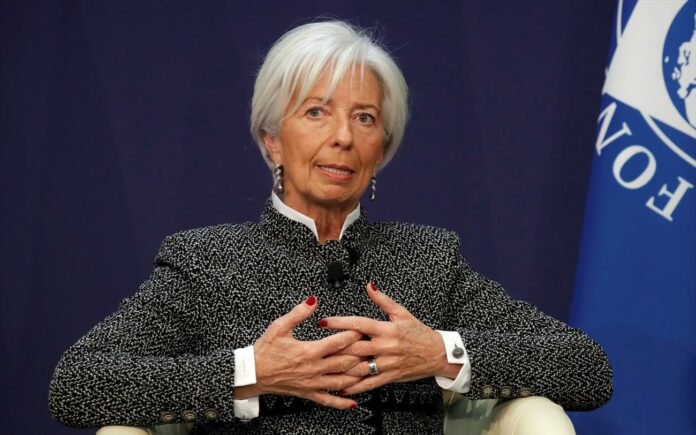By T. Tsiros
[email protected]
A high-ranking Greek government official over the weekend reiterated that the IMF believes Athens can achieve a primary budget surplus in 2019 of 3.5 percent target (of GDP for the year), while nevertheless adding that the Fund bases its assessment on different forecasts than those cited – or favored – by Athens.
The Greek government official spoke after a barrage of statements and contacts during the semi-annual IMF-WB group meetings in Washington D.C., where the ongoing Greek program and the country’s post-memorandum future were extensively discussed, among other issues.
The statement, as far as veteran “Greek watchers” are concerned, essentially points to the IMF’s continued insistence that a previously agreed-to austerity measure, entailed in lowering the annual tax-free income threshold for wage-earners and pensioners, should be applied in Jan. 1, 2019, rather than a year later, at the beginning of 2020.
The Tsipras coalition government had bowed to creditors’ demand for the specific austerity measure, with the course of the country’s state finances to determine whether it will be applied in 2019 instead of 2020.
At the same time, if the IMF believes that the 3.5-percent primary budget surplus cannot be reached under present fiscal conditions, it will also advise against the implementation of a series of “positive measures” that the poll-trailing Tsipras government had promised to take, primarily in relief for lower socio-economic strata in Greek society.
The total value of austerity measures, if taken in 2019, and without the simultaneous implementation of the positive counter-veiling package, is roughly four billion euros on an annual basis.
The issue was on the agenda of one-on-one talks held in Washington between IMF Managing Director Christine Lagarde and the heads of a top Greek delegation at the spring meetings, namely, Finance Minister Euclid Tsakalotos and Alternate FinMin Giorgos Chouliarakis. The Greek pair later met with IMF Europe director Poul Thomsen, one of the Fund’s “old hands” in terms of three successive Greek bailouts since 2010.
Thomsen, according to reports, considers the lowering of the annual income tax-free threshold as a “reform” and not a “fiscal measure”, in line with the Fund’s long-standing demand that the Greek state expand the tax base in the country instead of relying on the same portion of wage-earners and pensions – essentially, taxpayers considered in “high” or “middle-class” income brackets who cannot hide income.
In broad terms, the Greek side agrees with the implementation of a measure to “recalculate” pension rates (mostly downwards), but wants to bump the measure that slashes the tax deductible, for lower income taxpayers, to 2020. The Tsipras government also wants to implement the “positive measures” in 2019.
Conversely, the IMF – whose decision on whether and to what extent it will remain in the Greek program is pending – also expects a re-calculation of pension rates downwards. The Fund, according to most reports, is still pressing for a lowering of the tax deductible in 2019, instead of 2020, and wants to freeze “positive measures” until after 2019 – the year when general elections are set to take place in the country.














